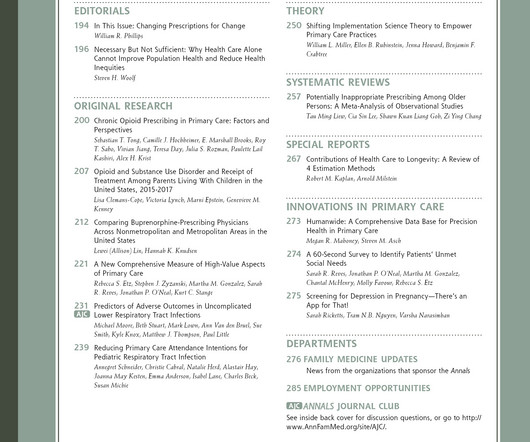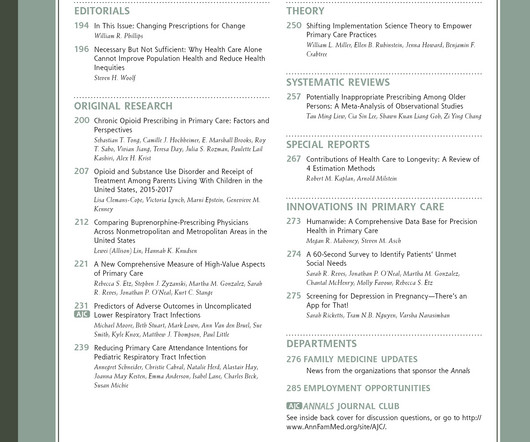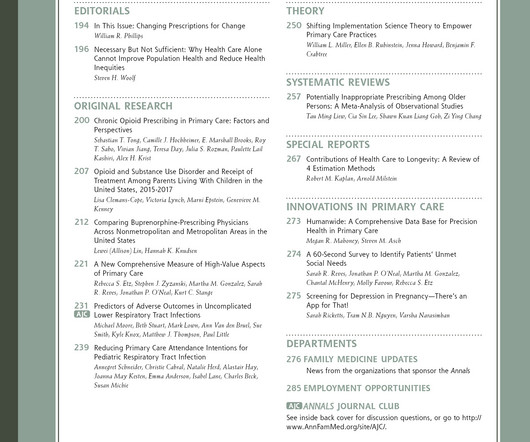Artificial Intelligence in Health Care
Integrated Care News by CFHA
MAY 1, 2025
That small win reminded me that artificial intelligence is already shaping the way our patients (and our families) search for health advice. Bridging the 17‑Year Research–Practice Gap Implementation scientists estimate that it takes about seventeen years for new evidence to become routine care (Rubin, 2023). JAMA , 329(16), 1333–1336.




























Let's personalize your content